Drilling and Driving
With new combination tools, it's no longer a full-day job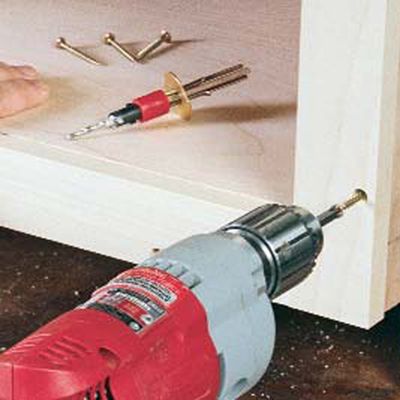
Synopsis: David Ashinghurst takes a look at screw drilling and driving systems that are designed to drill a pilot hole and countersink or counterbore in one stroke. These drills also have driver bits. Here, he compares prices, operation, counterbore sizes, and pros and cons for each. He evaluated the Chuck-Mate, the Insty-Bit, and the Snap-lock, and says that for general construction or paint-grade work, any of them work well and save time. And they help cut down on stray extension cords around your feet.
Six or seven years ago, it took four different drills to drive the screws for an armoire I was building. I had three drills chucked and ready—one with a pilot bit, another with a brad point for the counterbores and a third, a drywall screw gun, loaded to drive the screws home. And lost somewhere on the workbench was a cordless drill fitted with a countersink. In all the mess, my feet became ensnared in a tangle of extension cords, and I fell to the cement floor.
Since then, several systems have hit the market, and driving screws is no longer a wrist-wrenching, cord-consuming chore. The tools are designed to drill a pilot hole and countersink or counterbore in one stroke. The drill is then removed or swapped to reveal the driver bit. I have tried three of the more readily available systems that combine the drill and driver into one handy package.
The first one on the market was the Chuck-Mate, and its newfound convenience made it a tremendous success. Later, the InstyBit Quick Change system was introduced, and a similar QuickClick line from Snappy soon entered the fray. Now the snaplock systems have taken driving screws to a new level of ease. The snap-lock setup I evaluated was Makita’s QuadDriver. Similar ones are available from Craftsman, Dewalt and others.
The Chuck-Mate and Insty-Bit systems require removing the drill and counterbore bit and setting it aside to use the driver. The snaplocks contain both the drill and driver in one manageable unit that is flipped end for end to change tools. I preferred the snap-locks because there are no parts to be set aside and possibly lost.
Although the Chuck-Mate is easy to use and drills the best counterbores, its tendency to wobble and vibrate has relegated it to my used drill bit drawer. If you’re looking for versatility, Insty-Bit edges out the competition, provided you’re willing to lay out a considerable sum for all hex-drive bits. It uses a Quick-Change chuck that, once fitted, allows you to change from one bit to another, chuck-free, in seconds.
From Fine Woodworking #131
For the full article, download the PDF below:
Fine Woodworking Recommended Products
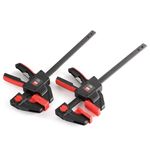
Bessey EKH Trigger Clamps
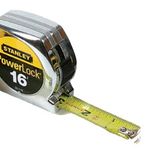
Stanley Powerlock 16-ft. tape measure
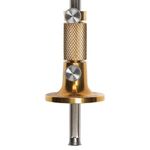
Tite-Mark Marking Gauge




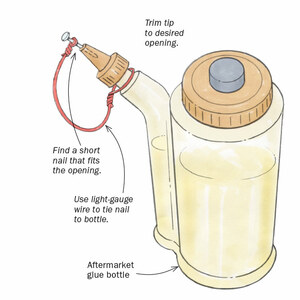
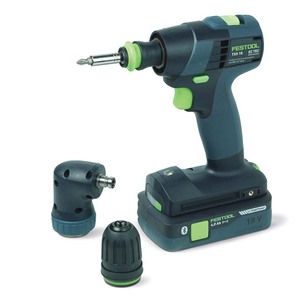




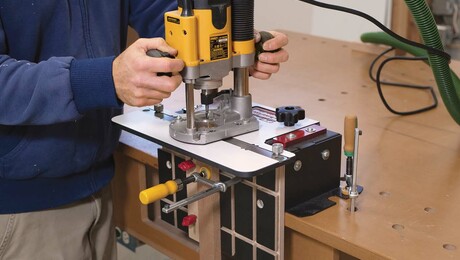
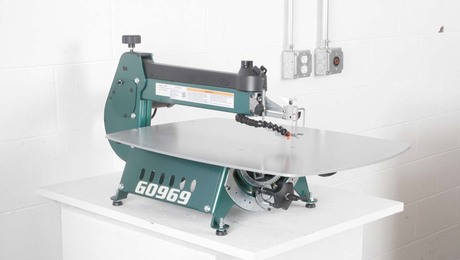

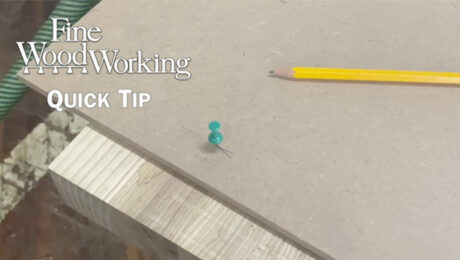








Log in or create an account to post a comment.
Sign up Log in